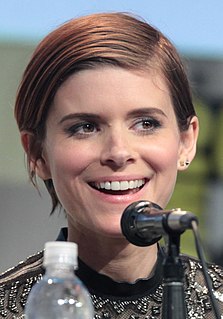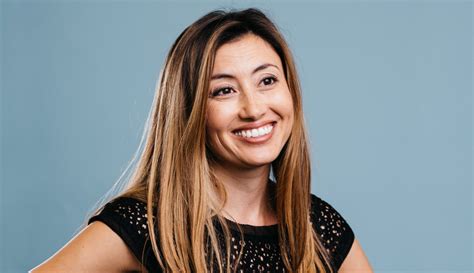A Quote by Julianne Moore
My job as an actor is to try to do what the director wants me to do. I'm going to do everything I can to incorporate that note and make it work. If it doesn't work, I'll try this kind of thing, and "How do you feel about that?" If you are at odds with the director, neither one of you is going to get anywhere. You really do have to be able to make both of you happy. Even when I was younger, there were times when you have to find a way to make it work for both of you.
Related Quotes
I'm the type of actor that believes the director has to be in charge. I've been on sets where the actor's ego was the most important thing, and with a director that messes it up. But I don't like a dictator, I want it to be collaborative - the best idea wins. If I feel respected, and I'm going to give that back. If a director wants to try something, cool, I'll give it back. I also feel like they cast me for a reason, so I'm going to make my mark on it... let me do my thing.
With a director it's all about the work; I'd work with a great director over - you know, I'm not the kind of actor who that doesn't go, 'I want to play this role.' It's more like, 'I want to work with this director,' regardless of what the role is because if it's a good director, you'll probably find a good role because it's a decent film. But a mediocre director will always make a mediocre movie.
Of course any actor is going to be happy to be nominated for an Oscar - absolutely - but I don't really think of it in that way. I've never really thought of my job in that way, because that's just a lot of pressure to be working towards one goal. I'm much more interested in finding roles that make me feel happy about going to work every day.
When I feel like work and life are both going well, I feel like I can be fully present at both. I think the reminder to me is that both are super important, and I need to be able to feel like I can experience both in the way that makes me happiest. If I'm not happy in one or the other, it really affects the other side.
Not harder than it should be, no. We're about the business, we're about the work. It's all about the work, always. We have fun and laugh and there're days that are more intense than others, but we're there to make it better. He's always going to try and make it better, I'm always going to try and make it better. So you accept anything, you accept whatever it takes to get it up on the screen and make it worthy.
Marriage is a really scary thing. I'm excited about it. I know it's not a mistake, it's the absolute right thing to do. I'm really happy about it. I really, really love my fiancee. We're good friends and I think it's going to work. But that's just the point - it's going to take work. It does make me feel vulnerable to be like, wow, I'm committed to this person for the rest of my life.
I make work that tries to sort of connect with something really, really familiar. I don't try to make work that's original. I try to make work that's quintessential. That's what I mean about the familiar. It operates with stuff that people already know or information that they already have and I try to just use that. Quintessential means like the perfect minimalist sculptor.
My teachers believe that the creative producer's job is to service the vision of the director, to stay within schedule and budget, and to get the studio what they need, but you work for the director to get their vision on the screen. That's not how everyone approaches producing, but it is certainly how directors like you to approach producing. How I was brought up is that my job is to help you make the movie you want to make.
I really don't find revivals very interesting because I like new work a lot. I feel like if you're going to pay me, then let me do what I do and let me try to solve some problems. Let me try to make something fly. Why would I do something that everybody has already done the hard work on? But that's me. Tons of people do revivals really well.
In terms of how I work with actors, having worked so heavily on the script I have a very clear idea of the characters; they are reasonably well illustrated in the script. If you cast it right, to a great degree you can hand it over to the actor and I just make suggestions. I'm not the kind of director who needs or wants to get into too much finessing. Ideally, when you hit the set, you have this conversation, like, 'eh, what did you think?' 'I don't know, what did you think?' 'Why don't we just try it again, make a few physical changes.'
I'm not going to pursue it the way that actors pursue it which means going to all of the auditions and getting a job and all that stuff, because I don't really need to get a job because I have a job as a writer/director. That's how I make my living mostly now. So I don't need to make a living as an actress.



































